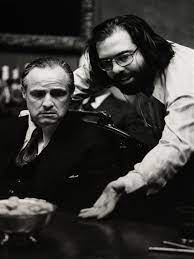 I originally invited Dr. Sanjeev Arora to speak to my social entrepreneurship class to include a focus on innovation in the health space (and because he’s kind of amazing), but as I listened to him speak to the class this past Monday, I was struck by how much his work is actually more broadly about building powerful networks to bring about social change. I have been spending a lot of time lately thinking about the possibility of democratizing social change through digital networks because of my work with the Dublin-based nonprofit organization ChangeX, so felt a bit silly for not recognizing this before Sanjeev’s remarks. Sanjeev began his work as an expert in Hep C, carrying a heavy load in his practice at the clinic he led out of the University of New Mexico. He told the story of a patient, a single mother who had had HEP C for 8 years, delaying treatment because it required making twelve trips to Albuquerque - something she couldn’t really afford with her two children and the demands of her work schedule. This patient had only decided to come to the clinic when she did because the pains in her abdomen had become so severe that she couldn’t function normally. That pain, Sanjeev explained, turned out to be cancer of the liver and the woman died not long after. Sanjeev was left asking himself the question: why did this woman have to die of a disease that I knew how to treat? In response to that question, Sanjeev launched Project ECHO, an effort to ensure the possibility of the “right knowledge at the right place at the right time," thereby democratizing expertise. While I had expected Sanjeev to talk more about the medical implications of his work, his emphasis was much more squarely focused on the importance of force multiplication, and specifically on four key ideas: Amplification - using technology to leverage scarce resources; Best practices - reducing disparity by creating access to expertise; Case-based learning, also referred to as ‘All Teach, All Learn’ - mastering complexity by building community among practitioners and sharing knowledge through application to real scenarios; and, Data - monitoring outcomes and sharing results to increase impact. Sanjeev also spoke to Project ECHO’s business model and his insistence that the services provided be made available for free. Involvement with the network requires a significant commitment of time and engagement, and Sanjeev has committed to raising his operational costs through philanthropy. His support has come from a wide variety of sources, including Zoom, which provides unlimited free access to participants thanks to an early meeting with the founder, Eric Yuan. The results of the ECHO approach, democratizing expertise and unleashing eight hundred and forty Project ECHO hubs across the globe, have been extraordinary. The work of Project ECHO has been evaluated in some of the world’s most prestigious medical journals, including the New England Journal of Medicine, and resulted in over 500 peer-reviewed publications. Having begun with a focus on Hep C, Project ECHO networks now address over 75 different diseases, and the work has also extended to the adjacent field of education. Sanjeev concluded his remarks with a slide picturing the director Francis Ford Coppola and the actor Marlon Brando, and Sanjeev told the story of Coppola asking Brando about what it was going to take to make the best possible movie. Brando’s response, Sanjeev said, was to “get everyone to make the same movie.” Sanjeev’s decision to give away all of Project ECHO’s work for free reflects an effort to address what Sanjeev believes to be the key obstacle to peace: inequity. As he explained, “All innovation, once it goes into business mode, systematically denies low-income people. There is no business model for the very poor.” Removing the profit motive in the distribution of expertise is essential in Sanjeev's mind to ensuring that we are able to metaphorically making the same movie. As a result of the strike, I elected to hold this class in a hybrid fashion, with students attending both online and in-person, and most of the remote students elected to not be on screen. Sanjeev noted that in Project ECHO sessions they don’t allow participants to engage off-screen because they believe relationship and connection to be essential to learning, and because the network is powered by engagement. It may be cost-free to participate, but you have to show a willingness to engage to be a part of Project ECHO. I had not asked my students to be on-screen for Sanjeev’s class, but I am asking that they join that way for this coming week. After Sanjeev’s talk, we discussed the pivots we are making as a class given the ongoing nature of the strike, specifically shifting to hybrid teaching and learning for the last two classes and changing the final presentation from an in-person presentation to video submissions to be assessed through virtual groups. For this coming, final week of class, we will be joined by Deb Jospin talking about the role of Boards. Readings for the class include “Board Roles and Responsibilities” The National Council of Nonprofits; “Exploring the Association Between Board and Organizational Performance,” William A. Brown, Nonprofit Management and Leadership; and at Deb’s recommendation, we are also reading The Board Source’s Twelve Principles of Governance that Power Exceptional Boards, which I can’t share with you, but highly recommend!
0 Comments
Leave a Reply. |
Jill's BlogPeople need meaning, the opportunity for mastery, and community to thrive. Creating opportunities for people to contribute, and to find their best selves is some of the most important work we can do. |